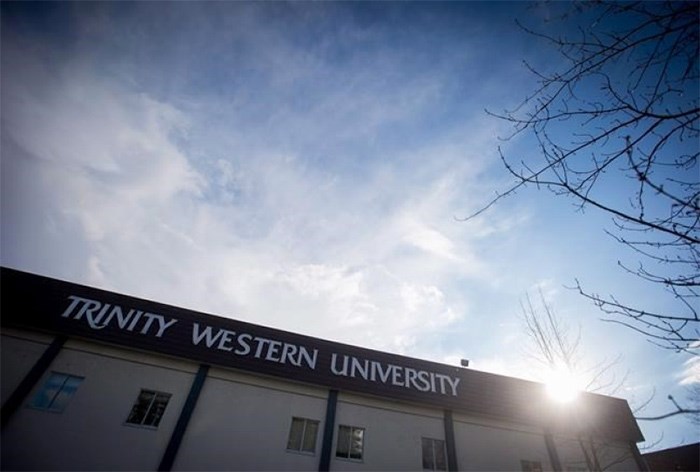 A building is seen at Trinity Western University in Langley, B.C., on Wednesday, February 22, 2017. The Supreme Court of Canada is set to release its decision Friday on whether law societies have the right to deny accreditation to a proposed law school at a Christian university in British Columbia. THE CANADIAN PRESS/Darryl Dyck
A building is seen at Trinity Western University in Langley, B.C., on Wednesday, February 22, 2017. The Supreme Court of Canada is set to release its decision Friday on whether law societies have the right to deny accreditation to a proposed law school at a Christian university in British Columbia. THE CANADIAN PRESS/Darryl Dyck
Societies governing the legal profession have the right to deny accreditation to a proposed law school at a Christian university in British Columbia, the Supreme Court of Canada has ruled.
In a pair of keenly anticipated decisions Friday, the high court said law societies in Ontario and British Columbia were entitled to ensure equal access to the bar, support diversity and prevent harm to lesbian, gay, bisexual, transgender and queer students.
The cases pitted two significant societal values — freedom of religion and promotion of equality — against one another.
Trinity Western University, a private post-secondary institution in Langley, B.C., was founded on evangelical Christian principles and requires students to adhere to a covenant allowing sexual intimacy only between a married man and woman.
Law societies overseeing the profession in Ontario and British Columbia say they would not license graduates from Trinity Western because the covenant amounts to discrimination against LGBTQ people.
The Court of Appeal for Ontario had upheld the rejection, while B.C.'s top court sided with the university.
In each case, the Supreme Court ruled 7-2 in favour of the respective law society.
A majority found that the decisions to deny accreditation were reasonable because they appropriately balanced the interference to freedom of religion with the public-interest objectives of the law societies.
In the decision concerning Ontario, five Supreme Court justices said the province's law society interfered only with the university's ability to operate a law school governed by the mandatory covenant.
"This limitation is of minor significance because a mandatory covenant is not absolutely required to study law in a Christian environment in which people follow certain religious rules of conduct, and attending a Christian law school is preferred, not necessary, for prospective TWU law students."
Trinity Western proposed the law school in 2012 and received approval to open from the Federation of Law Societies of Canada and the province's Ministry of Advanced Education.
The university wanted to ensure its graduates would be eligible to be called to the bar throughout Canada, and therefore applied to the provincial law societies for accreditation of the planned law school.
Six law societies — Alberta, Saskatchewan, Manitoba, New Brunswick, Prince Edward Island, and Newfoundland and Labrador — have granted accreditation.
In Ontario, the benchers of the Law Society of Upper Canada — since renamed the Law Society of Ontario — denied accreditation to the school in a 28-21 vote.
In reviewing the decision, an Ontario court found the society had undertaken a reasonable balancing of the charter protections at issue. The ruling was upheld on appeal.
British Columbia's law society denied recognition to the school on the basis of a binding referendum of its members. The reviewing court ruled that the process ignored an obligation to consider the competing charter rights at play, and set aside the law society's decision. An appeal court affirmed the ruling.
![]()


